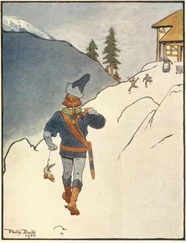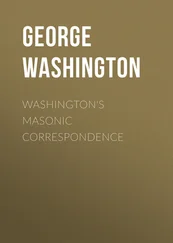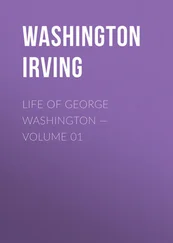Pelham Wodehouse - Not George Washington — an Autobiographical Novel
Здесь есть возможность читать онлайн «Pelham Wodehouse - Not George Washington — an Autobiographical Novel» весь текст электронной книги совершенно бесплатно (целиком полную версию без сокращений). В некоторых случаях можно слушать аудио, скачать через торрент в формате fb2 и присутствует краткое содержание. Жанр: Классическая проза, Юмористическая проза, на английском языке. Описание произведения, (предисловие) а так же отзывы посетителей доступны на портале библиотеки ЛибКат.
- Название:Not George Washington — an Autobiographical Novel
- Автор:
- Жанр:
- Год:неизвестен
- ISBN:нет данных
- Рейтинг книги:4 / 5. Голосов: 1
-
Избранное:Добавить в избранное
- Отзывы:
-
Ваша оценка:
- 80
- 1
- 2
- 3
- 4
- 5
Not George Washington — an Autobiographical Novel: краткое содержание, описание и аннотация
Предлагаем к чтению аннотацию, описание, краткое содержание или предисловие (зависит от того, что написал сам автор книги «Not George Washington — an Autobiographical Novel»). Если вы не нашли необходимую информацию о книге — напишите в комментариях, мы постараемся отыскать её.
Not George Washington — an Autobiographical Novel — читать онлайн бесплатно полную книгу (весь текст) целиком
Ниже представлен текст книги, разбитый по страницам. Система сохранения места последней прочитанной страницы, позволяет с удобством читать онлайн бесплатно книгу «Not George Washington — an Autobiographical Novel», без необходимости каждый раз заново искать на чём Вы остановились. Поставьте закладку, и сможете в любой момент перейти на страницу, на которой закончили чтение.
Интервал:
Закладка:
"Mr. Cloyster, sir? Yessir. I'll find out whether Mr. Malim can see you, sir."
Malim came out to me. "Hatton's not here," he said, "but come in. There's a smoking concert going on."
He took me into the room, the windows of which I had seen from the street.
There was a burst of cheering as we entered the room. The song was finished, and there was a movement among the audience. "It's the interval," said Malim.
Men surged out of the packed front room into the passage, and then into a sort of bar parlour. Malim and I also made our way there. "That's the fetish of the club," said Malim, pointing to a barrel standing on end; "and I'll introduce you to the man who is sitting on it. He's little Michael, the musical critic. They once put on an operetta of his at the Court. It ran about two nights, but he reckons all the events of the world from the date of its production."
"Mr. Cloyster—Mr. Michael."
The musician hopped down from the barrel and shook hands. He was a dapper little person, and had a trick of punctuating every sentence with a snigger.
"Cheer-o," he said genially. "Is this your first visit?"
I said it was.
"Then sit on the barrel. We are the only club in London who can offer you the privilege." Accordingly I sat on the barrel, and through a murmur of applause I could hear Michael telling someone that he'd first seen that barrel five years before his operetta came out at the Court.
At that moment a venerable figure strode with dignity into the bar.
"Maundrell," said Malim to me. "The last of the old Bohemians. An old actor. Always wears the steeple hat and a long coat with skirts."
The survivor of the days of Kean uttered a bellow for whisky-and-water.
"That barrel," he said, "reminds me of Buckstone's days at the Haymarket. After the performance we used to meet at the Café de l'Europe, a few yards from the theatre. Our secret society sat there."
"What was the society called, Mr. Maundrell?" asked a new member with unusual intrepidity.
"Its name," replied the white-headed actor simply, "I shall not divulge. It was not, however, altogether unconnected with the Pink Men of the Blue Mountains. We used to sit, we who were initiated, in a circle. We met to discuss the business of the society. Oh, we were the observed of all observers, I can assure you. Our society was extensive. It had its offshoots in foreign lands. Well, we at these meetings used to sit round a barrel—a great big barrel, which had a hole in the top. The barrel was not merely an ornament, for through the hole in the top we threw any scraps and odds and ends we did not want. Bits of tobacco, bread, marrow bones, the dregs of our glasses—anything and everything went into the barrel. And so it happened, as the barrel became fuller and fuller, strange animals made their appearance—animals of peculiar shape and form crawled out of the barrel and would attempt to escape across the floor. But we were on their tracks. We saw them. We headed them off with our sticks, and we chased them back again to the place where they had been born and bred. We poked them in, sir, with our sticks."
Mr. Maundrell emitted a placid chuckle at this reminiscence.
"A good many members of this club," whispered Malim to me, "would have gone back into that barrel."
A bell sounded. "That's for the second part to begin," said Malim.
We herded back along the passage. A voice cried, "Be seated, please, gentlemen."
At the far end of the room was a table for the chairman and the committee, and to the left stood a piano. Everyone had now sat down except the chairman, who was apparently not in the room. There was a pause. Then a man from the audience whooped sharply and clambered over the table and into the place of the chairman. He tapped twice with the mallet. "Get out of that chair," yelled various voices.
"Gentlemen," said the man in the chair. A howl of execration went up, and simultaneously the door was flung open. A double file of white-robed Druids came, chanting, into the room.
The Druids carried in with them a small portable tree which they proceeded to set upright. The chant now became extremely topical. Each Druid sang a verse in turn, while his fellow Druids danced a stately measure round the tree. As the verse was being sung, an imitation granite altar was hastily erected.
The man in the chair, who had so far smoked a cigarette in silence, now tapped again with his mallet. "Gentlemen," he observed.
The Druids ended their song abruptly, and made a dash at the occupant of the chair. The audience stood up. "A victim for our ancient rites!" screamed the Druids, falling upon the man and dragging him towards the property altar.
The victim showed every sign of objection to early English rites; but he was dislodged, and after being dragged, struggling, across the table, subsided quickly on the floor. The mob surged about and around him. He was hidden from view. His position, however, could be located by a series of piercing shrieks.
The door again opened. Mr. Maundrell, the real chairman of the evening, stood on the threshold. "Chair!" was now the word that arose on every side, and at this signal the Druids disappeared at a trot past the long-bearded, impassive Mr. Maundrell. Their victim followed them, but before he did so he picked up his trousers which were lying on the carpet.
All the time this scene had been going on, I fancied I recognised the man in the chair. In a flash I remembered. It was Dawkins who had coached First Trinity, and whom I, as a visitor once at the crew's training dinner, had last seen going through the ancient and honourable process of de-bagging at the hands of his light-hearted boat.
"Come on," said Malim. "Godfrey Lane's going to sing a patriotic song. They will let him do it. We'll go down to the Temple and find John Hatton."
We left the Barrel at about one o'clock. It was a typical London late autumn night. Quiet with the peace of a humming top; warm with the heat generated from mellow asphalt and resinous wood-paving.
We turned from Bedford Street eastwards along the Strand.
Between one and two the Strand is as empty as it ever is. It is given over to lurchers and policemen. Fleet Street reproduces for this one hour the Sahara.
"When I knock at the Temple gate late at night," said Malim, "and am admitted by the night porter, I always feel a pleasantly archaic touch."
I agreed with him. The process seemed a quaint admixture of an Oxford or Cambridge college, Gottingen, and a feudal keep. And after the gate had been closed behind one, it was difficult to realise that within a few yards of an academic system of lawns and buildings full of living traditions and associations which wainscoting and winding stairs engender, lay the modern world, its American invaders, its new humour, its women's clubs, its long firms, its musical comedies, its Park Lane, and its Strand with the hub of the universe projecting from the roadway at Charing Cross, plain for Englishmen to gloat over and for foreigners to envy.
Sixty-two Harcourt Buildings is emblazoned with many names, including that of the Rev. John Hatton. The oak was not sported, and our rap at the inner door was immediately answered by a shout of "Come in!" As we opened it we heard a peculiar whirring sound. "Road skates," said Hatton, gracefully circling the table and then coming to a standstill. I was introduced. "I'm very glad to see you both," he said. "The two other men I share these rooms with have gone away, so I'm killing time by training for my road-skate tour abroad. It's trying for one's ankles."
"Could you go downstairs on them?" said Malim.
"Certainly," he replied, "I'll do so now. And when we're down, I'll have a little practice in the open."
Whereupon he skated to the landing, scrambled down the stairs, sped up Middle Temple Lane, and called the porter to let us out into Fleet Street. He struck me as a man who differed in some respects from the popular conception of a curate.
Читать дальшеИнтервал:
Закладка:
Похожие книги на «Not George Washington — an Autobiographical Novel»
Представляем Вашему вниманию похожие книги на «Not George Washington — an Autobiographical Novel» списком для выбора. Мы отобрали схожую по названию и смыслу литературу в надежде предоставить читателям больше вариантов отыскать новые, интересные, ещё непрочитанные произведения.
Обсуждение, отзывы о книге «Not George Washington — an Autobiographical Novel» и просто собственные мнения читателей. Оставьте ваши комментарии, напишите, что Вы думаете о произведении, его смысле или главных героях. Укажите что конкретно понравилось, а что нет, и почему Вы так считаете.



